
Dogs can eat bananas because they are a fruit that is safe to eat. A banana contains no components that could harm your dog’s health. Bananas are popular with dogs because of their strong smell and sweetness.
The banana is considered a good food for dogs, but giving them bananas as a meal that swells their stomachs is detrimental to their health. Eating it occasionally as a reward or snack rather than daily is better.
Is bananas safe for dogs, and how do you feed them?
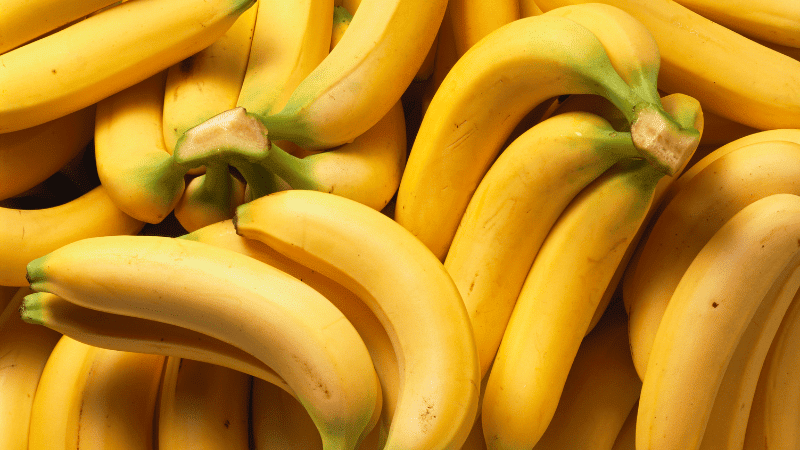
The banana is a healthy fruit for dogs to consume. You can serve bananas in various kinds of ways. It is best to devise ways to increase variations for your dog so that he will be happy. How to give it is explained in the following:
Taste the ingredients.
In the same way that people eat bananas raw, dogs can also eat bananas raw. The sweetness of bananas is strong even when they are raw and soft, so they can be given to puppies through seniors.
Include a tiny amount of it in your dog’s meals.
You could also combine it with the meal you normally provide. Giving it to someone with a low appetite or difficulty eating is a good idea when they have trouble eating.
Bananas are soft and easy to eat, and their strong smell may increase your appetite.
Medications can also be given with it.
When you give medicine to treat a disease, you might fail to be prepared to tolerate it properly. Also, bananas can be used in such cases.
The banana’s soft texture makes it easy to wrap the medicine in it, and the strong smell of the banana may mask the smell of the medicine, and you may eat them without even noticing.
Ingredients for homemade snacks
In addition, you can find out how to make homemade dog treats, find recipes, and mix them. When frozen, you can make homemade ice cream for dogs or dry it to make banana chips, homemade dog banana cake, etc.
The sweet taste of bananas makes them delicious without using sugar, so owners and dogs can enjoy them together. Your dog will be happy if you make a variety of them.
Banana nutrients and their effects on dogs
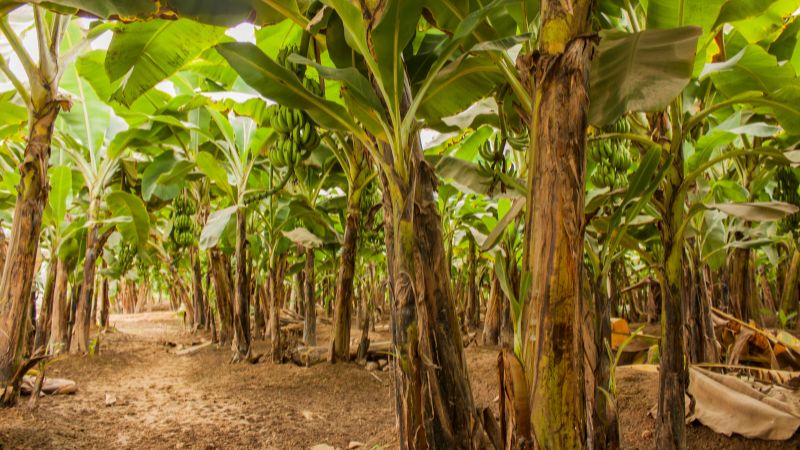
A banana is a nutrient-dense and healthy food. We’ll look at what nutrients bananas contain and what benefits eating them can have.
Bananas are a highly nutritious food!
In bananas, nutrients are found as follows.
- potassium
- dietary fibre
- Polyphenols
- Carbohydrate
- Vitamins
- amino acid
Therefore, bananas contain a wide variety of nutrients.
Prepare the intestinal environment with dietary fibre
Bananas have 1.1 grams of fibre per 100 grams of edible portion. There are 1.1 grams of dietary fibre in bananas, of which 1g is insoluble, and 0.1g is water-soluble fiber.
It contains 1g of insoluble fibre and 0.1g of water-soluble fibre.
The insoluble dietary fibre in bananas, which is abundant, regulates the intestinal environment and enhances bowel movements.
Bananas improve the intestinal environment, which prevents constipation.
It helps maintain health.
A banana contains more potassium than other fruits. In 100 g of edible banana parts, potassium content is 360 mg.
Sodium and potassium work together to remove excess sodium from the body and maintain the proper amount of water.
As a result of excreting sodium outside, blood pressure is lowered, the heart works normally, and muscles contract normally. For good health, potassium is essential.
Dogs with impaired kidney function should be careful If given bananas. When renal excretion is reduced, the ketone is not expelled well and builds up in the urinary tract.
The accumulation of potassium in the kidneys can cause hyperkalemia and arrhythmia.
Vitamins support skin well-being.
Bananas are loaded with nutrients. There are 5 vitamins in this category: vitamin B2, vitamin B1, vitamin dietary fibre, niacin, and folate acid.
Vitamins support the health of mucous membranes and skin and maintain nerve function.
Bananas and dogs: dosage
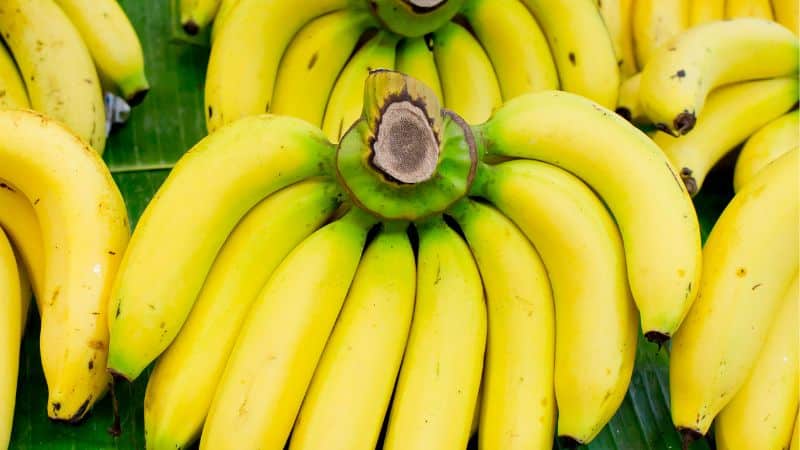
Bananas should be given to dogs as quickly as possible: 1/4 banana for small dogs, 1/3 banana for medium dogs, and 1/2 banana for large dogs.
These fruits also contain sugar, as mentioned earlier. The calorie content of a banana is about 76 kcal per 110 g of edible portion.
In terms of calories, it isn’t that high, but from the point of view of a dog, it has many calories.
B bananas should be consumed within 10%-15% of your daily calories as a snack.
Feeding bananas to your dog: precautions

Despite bananas being highly nutritious, there are some precautions to take when giving bananas to dogs. This is what I will explain below.
Be careful to give only a few bananas.
Sugars are found in bananas. A small number of calories for a person may be too many for a dog. Eating too much can lead to obesity.
Obesity affects the legs and waist and often causes various diseases. It is advisable to provide bananas to canines in moderate portions.
Also, adjust other snacks or reduce food if you give too many bananas.
Peeling a banana does not give you bananas.
Banana peels are bad for digestion, so remove them after serving them to your canine.
If left untreated, indigestion can cause diarrhoea, vomiting, and even bowel obstructions.
Please give it to your puppy with caution.
Because bananas are so soft, they may be offered to small and senior canines. Then again, it would be better not to administer it to puppies.
Puppies have underdeveloped internal organs, including digestive organs.
The digestive system of puppies is also immature so that bananas can be bad for digestion.
When the bananas’ growth has subsided, it is the best time to give them. Please refer to the following timetable if you’re wondering when to feed your puppy bananas.
Small dogs should be given bananas at around 10 months old, medium dogs at about one year old, and large dogs at about one and a half years old. Bananas can also cause diarrhea and vomiting due to indigestion.
Bananas can be digested after that period since the digestive system is also somewhat developed.
Keep an eye out for allergies.
A dog that has never been given bananas or is originally allergic may develop an allergy and experience symptoms such as itching, diarrhea, and vomiting. Give bananas to see if there is progress in your medical situation.
If you give them bananas or other snacks or food, you may not know what caused your physical condition.
First, only give bananas that you normally eat to your baby when giving them bananas for the first time.
Be sure you keep a record of what you share. If your physical condition is abnormal, it will be easier to tell your veterinarian.
See your vet if your canine has a chronic disease.
Dogs with the following diseases should not receive bananas.
- The disease of urolithiasis
- The heart is a disease
- Dialysis of the kidney
Furthermore, bananas contain oxalic acid, which can lead to calcium oxalate stones. In dogs with urolithiasis, it can be harmful, so speak with your vet before administering it.
The potassium in bananas can adversely affect dogs with impaired kidney function and aggravate diseases. Consult your veterinarian if bananas affect your dog’s therapeutic diet or medication.
Frequently Asked Questions. Can Dogs Eat Bananas?
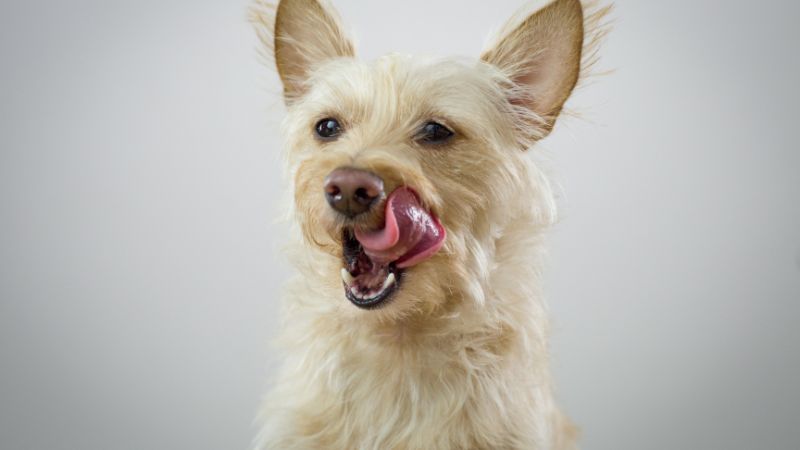
Can dogs eat banana peel?

The skin should not be given.
The banana peel needs to be well-digested. If you wish to offer it to your canine, peel it off. In addition to being hard, it may get stuck in the intestines and cause intestinal obstruction. Pesticides and disinfectants may remain on the skin if you cut them into small pieces.
When you feed your dog bananas daily, your dog may eat the bananas left around the house without permission.
Choking on hard skin while swallowing it is difficult. Despite peeling, cutting it into small pieces keeps it from getting stuck in the throat.
Can dogs eat Banana yogurt?
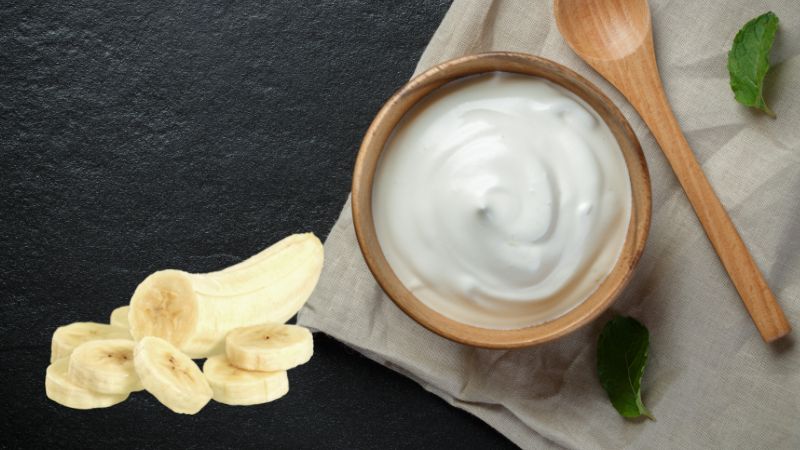
It is most effective when bananas are combined with yoghurt, which improves the intestinal environment.
Consuming a modest portion of yogurt is best since yoghurt is high in fat. Combine 2 teaspoons of plain unsweetened yogurt with 20 grams of bananas.
It is made by cutting the bananas into small pieces and putting plain yoghurt over them. The mouthfeel is smooth and good when the meal is not progressing. Consider whether your dog has any dairy allergies when giving yoghurt.
Can dogs eat banana chips?
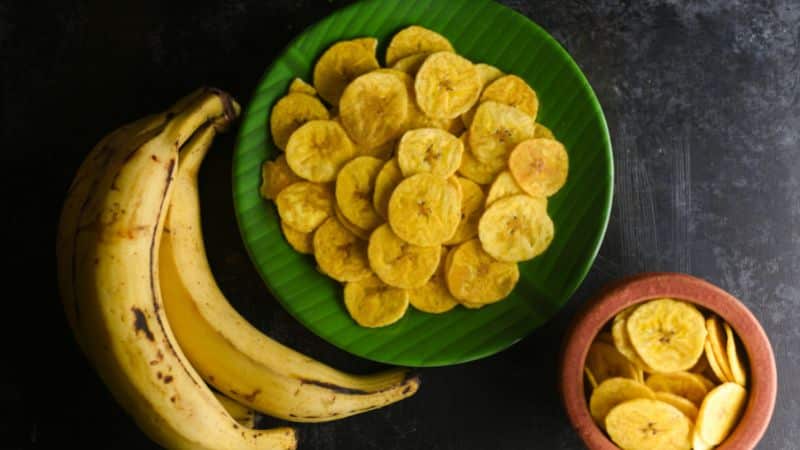
Commercial banana chips contain oil and are not recommended, but hand-baked banana chips are safe.
Once the bananas have been peeled, cut them into thin slices of 3 mm and arrange them, so they do not overlap.
Put on a net and bake at 130 degrees for 30 minutes. After it has browned and the moisture has evaporated, let it cool. The oven is now done. Once the heat is removed, it is done. Ensure your canine with a constant supply of warmth.
Can dogs eat banana pancakes with rice flour?
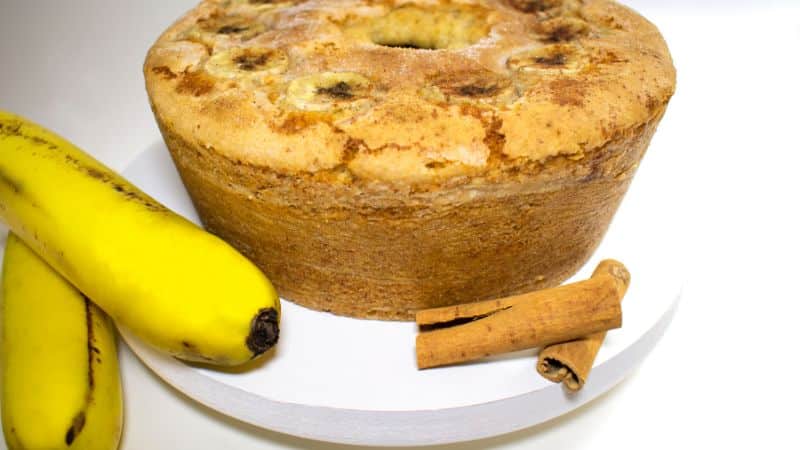
Also, pancakes are a great recipe for your dog’s birthday. By making it with rice flour and soy milk, you can give it to your dog with a wheat allergy or a cow’s milk allergy. Pancakes are usually baked in olive oil, but if you don’t want to use oil, you can use a Teflon-coated frying pan to make it easier to bake.
Can dogs eat banana cookies?

A cookie made with olive oil and flour without butter or eggs. If your dog is allergic to wheat, you can substitute rice flour.
After peeling 2 ripe bananas, crush them with a fork and add 200 g of flour. Cover the mixture in foil wrap and set it in the fridge.
When the mixture is slightly damp, you can lift it from the fridge and press it out with a roller pin. Cut out the shape you like and arrange it on a baking sheet.
Then bake it at 160 degrees for 30 minutes. Residual heat is not required. When it’s done, let it cool in the oven, and you’re done.
Summary
Can Dogs Eat Bananas? The answer is yes.
This time, I summarized whether dogs should be given bananas. Bananas are also nutritious for dogs and are considered good fruit. Bananas are ideal for keeping in quantities as snacks.
Overeating bananas can have a negative health effect on your dog. Make sure you give your dog the appropriate amount and tell him how delicious bananas are.
Leave a Reply